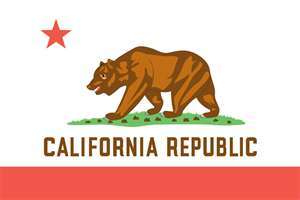Consumer Watchdog Tells CA DMV New Driverless Car Regulations Must Protect Privacy
 |
SACRAMENTO, CA--March 11, 2014: The California Department of Motor Vehicles must enact regulations that protect users' privacy in new regulations it is drafting that would cover Google's driverless cars and other "autonomous vehicles" traveling on California's highways, Consumer Watchdog told the DMV today.
"The DMV regulations must give the user control over what data is gathered and how the information will be used," said John M. Simpson, Privacy Project Director. "The DMV's autonomous vehicle regulations must provide that driverless cars gather only the data necessary to operate the vehicle and retain that data only as long as necessary for the vehicle's operation. The regulations should provide that the data must not be used for any additional purpose such as marketing or advertising without the consumer's explicit opt-in consent."
The company probably most directly affected by the new autonomous vehicle regulations will be Google, which is pioneering development of the robot-driven cars. The Internet giant was the driving force behind SB 1298, which charged the DMV with the task of developing the regulations and also rebuffed attempts to require privacy protections in the law.
"However, it is not too late to implement privacy safeguards in this rulemaking and Consumer Watchdog calls on the DMV to do so," said Simpson. "Failure to act will mean substantial privacy risks from the manufacturers' driverless car technology if there are not protections from what Google is best known for: the collection and use of voluminous personal information about us and our movements."
Simpson spoke at a workshop at DMV Headquarters to discuss development of regulations for autonomous vehicles, popularly known as driverless cars. Read the text of Simpson's written comments here: DMV Testimony
Read the DMV's background on the workshop and get an agenda here: Automonous Driving
Simpson continued:
"Without appropriate regulations, autonomous vehicles will be able to gather unprecedented amounts of information about the use of those vehicles. How will it be used? Just as we are now tracked around the Internet, will Google and other purveyors of driverless car technology now be looking over our shoulders on every highway and byway? Will the data be provided to insurance companies for underwriting purposes or to third parties that develop some kind of a driving score related to where and when individuals travel? Will it be used to serve in-car advertisements or advertisements through other venues in the Google suite of products? Will it be used to track our movements and those of surrounding cars and mobile devices so that Google's advertisers can better locate us?"
Simpson said he believes there are two reasons Google won't endorse simple privacy safeguards for its self-driving cars:
"First, Google's entire business model is based on building digital dossiers about our personal behavior and using them to sell the most personal advertising to us. You're not Google's customer; you are its product – the one it sells to corporations willing to pay any price to reach you. Will the driverless technology be just about getting us from point to point or more about tracking how we got there and what we did along the way?
"Second, computer engineers, who believe that more data is always better, are in charge at Google. They may not know what they would use data for today, but they think they may someday find a use for it and don't want any restrictions on them now."
Consumer Watchdog criticized the way the Legislature and Governor rushed to endorse the driverless technology without adequately considering its ramifications.
"The DMV needs study this carefully and get the rules right," said Simpson. "The department must not fall victim to Google's ability to dazzle and get its way, as happened with the Governor and Legislature."
The time to ensure that the new driverless car technology has the necessary safety and privacy protections is while it is being designed and developed, Consumer Watchdog said. Trying to catch up after a new technology is developed and broadly implemented simply will not work.
"Google has repeatedly demonstrated that it only pays lip service to privacy concerns and repeatedly violated consumers' privacy," said Simpson. "Consumers must have the right to give opt-in consent before any data gathered through driverless car technology is used for any purpose other than driving the vehicle."


